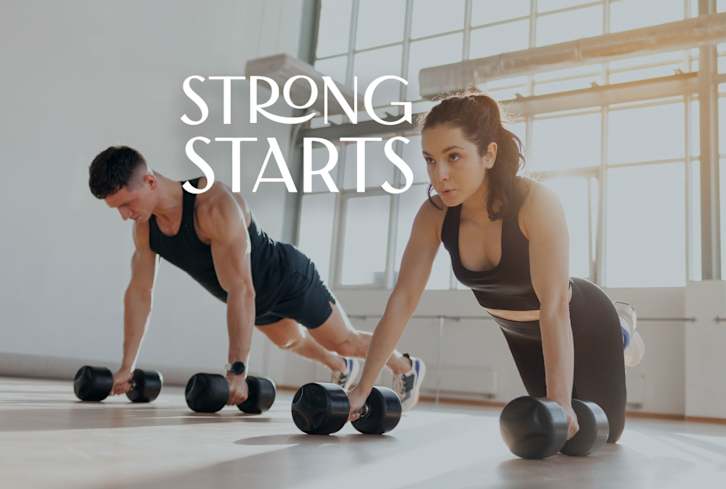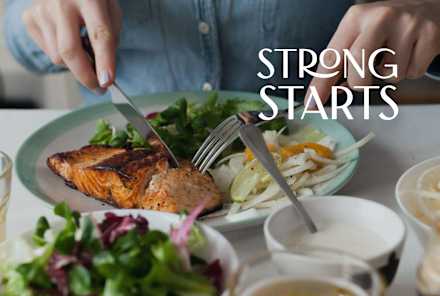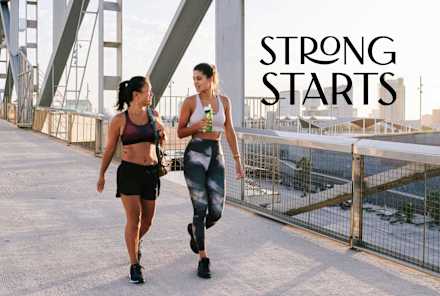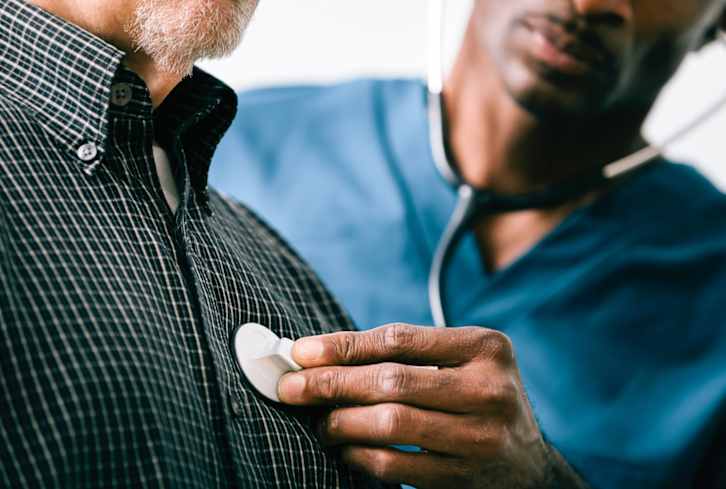Advertisement
5 Signs You're Aging More Quickly Than You Should + Exactly What To Do About Each



Aging isn't a bad thing, it’s the way of life. But there is a difference between aging and aging well. There are some important diet and lifestyle factors that either accelerate the aging process or make it go a lot more smoothly.The key to aging well starts with self-examination—and then taking control of a bodily process called autophagy.
What is autophagy, you ask? Well, it's a natural thing that happens in your body. The word literally means "self" and "eating," and so as you might expect, autophagy is your body’s way of ridding itself of cellular junk like excess proteins and cells that are no longer being used. We've known about autophagy for a long time, but have more recently been leaning more about how awakening this process can majorly affect your biological aging process, reduce your risk for disease, boost your vitality and energy, invigorate your skin, and even help you lose weight. Boosting autophagy is one of the main goals of intermittent fasting.
Oftentimes, this process lies dormant or is more muted than it should be, but it's already there in your body just waiting to be turned on. Exactly how to do this is what I cover in my book, GLOW15. But first, what are the signs that you're not activating autophagy and are therefore aging more quickly than you should? Here are five key signs. Being aware of them is your first step to boosting your vitality:
1. You struggle with dry or dull skin.
The first and most obvious sign of aging has everything to do with the skin, our body's largest organ. Our skin protects us from the elements, provides a barrier to the outside world, naturally expels toxins, and controls our body temperature—but it's also an outer reflection of our body’s inner health. Chronic stress can cause1 inflammation and prematurely age your skin. If your skin is dry, itchy, flaky, irritated, wrinkled, or sagging, chances are it is because your skin is sending you a message.
What to do: Pay attention to changes in your skin, pamper it, eat nutrient-potent foods, and create a supportive skin regime designed to boost collagen-production, moisturize, and lower inflammation.
2. You sit a little bit too much.
Sitting is the new smoking. Did you know that Americans spend 70 percent of their time2 sitting down? Recent medical research has shown that our work and home life habits are contributing to accelerated aging. Sitting, whether in your car, at your desk, or in front of the television, is a factor in the onset of numerous health concerns including obesity, cardiovascular disease, high blood pressure, high blood sugar, excess body fat around the waist, and abnormal cholesterol levels.
What to do: Log your standing hours, wear a pedometer or step counter, or invest in a standing desk—and even build some short HIIT workouts into your daily routine to counteract this common aging culprit.
3. You've got some stubborn weight around the middle.
You may have stuck to the same diet and exercise routine for years, but suddenly you notice that your waistline is expanding. Metabolic and hormonal changes that naturally occur as the body ages do contribute to belly fat, especially in women and men in middle age. For women, this can be especially true after menopause when estrogen decreases and body fat shifts to the abdomen. This can get in the way of you looking a feeling your best, but visceral fat in the gut (belly fat) is also a contributor3 to accelerated aging and health risks such as heart disease, type 2 diabetes, high blood pressure, and respiratory distress.
What to do: Connect with your body and pay attention to your waistline. Change up your diet plan with protein-cycling and intermittent fasting to unlock your body's true metabolic potential.
4. Your eyes are red or tired.
You look in the mirror and suddenly realize that your eyes are constantly red or dropping. The clear-eyed, sparkling gaze of your 20s seems to have given way to constant red eye and your contact solution, eye drops, antihistamines, and eye creams aren’t working. Many experts think red eyes have to do with4 inflammation and might be related to conditions like arthritis or thyroid dysfunction.
What to do: Incorporate an alkaline-based menu with whole (not processed) foods into your weekly grocery list. Sweet potatoes, cucumbers, almonds, walnuts, and garlic can all combat inflammation, which will slow down the effects while limiting inflammation—the culprit behind many of these aging-related health dysfunctions.
5. You're forgetful or have trouble concentrating.
Memory loss and forgetfulness is a natural sign of aging—especially when you are living a stressful life. As we get older, natural brain health deterioration and glitches can lead to delays in recalling information such as names, movie titles, telephone numbers—things that just seemed to always be ready in our memory reserve when we were younger.
What to do: Age-related memory loss can be slowed down with the right foods and nutrients as well as brain-stimulating activity. An omega-3 DHA-rich diet and supplement routine should become part of your everyday self-care.
Remember, by making small but high-impact changes to your everyday routine, you can support your body in this process called aging. The great news is a little bit of effort goes a very long way, and your body will thank you for every little thing you do.
Interested in healthy aging? Here's more about the link between inflammation and accelerated aging.
Watch Next
Enjoy some of our favorite clips from classes
Enjoy some of our favorite clips from classes
What Is Meditation?
Mindfulness/Spirituality | Light Watkins
Box Breathing
Mindfulness/Spirituality | Gwen Dittmar
What Breathwork Can Address
Mindfulness/Spirituality | Gwen Dittmar
The 8 Limbs of Yoga - What is Asana?
Yoga | Caley Alyssa
Two Standing Postures to Open Up Tight Hips
Yoga | Caley Alyssa
How Plants Can Optimize Athletic Performance
Nutrition | Rich Roll
What to Eat Before a Workout
Nutrition | Rich Roll
How Ayurveda Helps Us Navigate Modern Life
Nutrition | Sahara Rose
Messages About Love & Relationships
Love & Relationships | Esther Perel
Love Languages
Love & Relationships | Esther Perel
What Is Meditation?
Box Breathing
What Breathwork Can Address
The 8 Limbs of Yoga - What is Asana?
Two Standing Postures to Open Up Tight Hips
How Plants Can Optimize Athletic Performance
What to Eat Before a Workout
How Ayurveda Helps Us Navigate Modern Life
Messages About Love & Relationships
Love Languages
Advertisement

Why Does It Feel Like So Many Folks Have IBS? Experts Weigh In
Gretchen Lidicker, M.S.

Why It's Harder For Women To Look Toned Than Men (But Not Impossible)
Molly Knudsen, M.S., RDN

Why Does It Feel Like So Many Folks Have IBS? Experts Weigh In
Gretchen Lidicker, M.S.

Why It's Harder For Women To Look Toned Than Men (But Not Impossible)
Molly Knudsen, M.S., RDN

Why Does It Feel Like So Many Folks Have IBS? Experts Weigh In
Gretchen Lidicker, M.S.

Why It's Harder For Women To Look Toned Than Men (But Not Impossible)
Molly Knudsen, M.S., RDN

Why Does It Feel Like So Many Folks Have IBS? Experts Weigh In
Gretchen Lidicker, M.S.

Why It's Harder For Women To Look Toned Than Men (But Not Impossible)
Molly Knudsen, M.S., RDN














